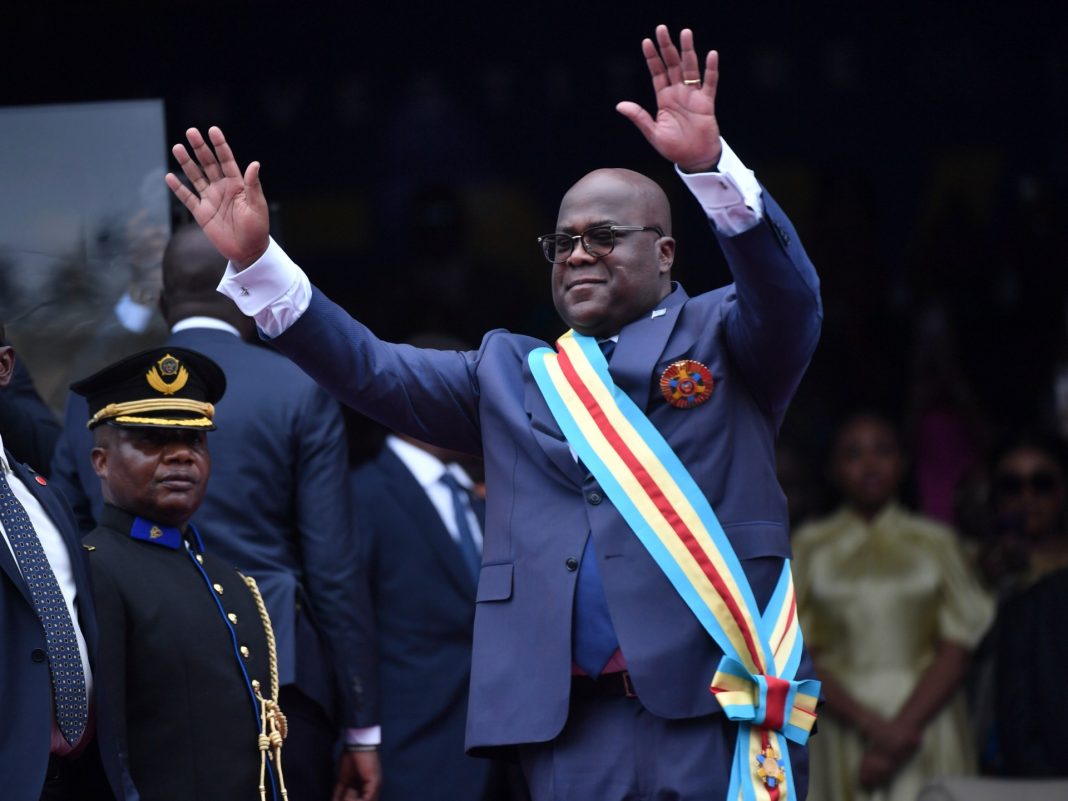The Congolese president made a landslide victory in December elections highly contested by opposition candidates.
The Democratic Republic of the Congo’s President Felix Tshisekedi has been sworn in for a second five-year term following highly contested elections in December.
“I am taking back the baton of command that you entrusted to me. We want a more united, stronger and prosperous Congo,” Tshisekedi, 60, said during the inauguration ceremony in the capital on Saturday.
“I am aware of your expectations,” he declared, referring among other things to unemployment, youth, women’s rights and national cohesion.
With tensions simmering in the vast nation’s volatile eastern provinces, the leader known as “Fatshi” picked Kinshasa’s 80,000-capacity Martyrs sports stadium for the inauguration ceremony.
The stands were packed well before midday with singing and dancing in full flow awaiting the arrival of several invited heads of African states and traditional chiefs from the country’s 26 provinces.
Tshisekedi was first sworn in as president in January 2019, after controversially defeating Joseph Kabila.
He won the first time promising to improve living conditions in the DRC – which boasts mineral riches but has a largely impoverished population of 100 million – and put an end to 25 years of bloodshed in the east.
The Congolese president has not kept those promises, but this time around, he campaigned strongly on his first-term achievements such as free primary medication, asking for another mandate to “consolidate” the progress.

‘Discontent’
The Congolese president made a landslide victory in the December 20 elections winning more than 70 percent of the vote.
The election had more than 40 percent turnout, with some 18 million people voting.
Even before the results were announced in late December, opposition candidates – including businessman Moise Katumbi who finished behind Tshisekedi with 18 percent of the vote – said they rejected the results and called on the population to mobilise.
The logistical problems included many polling stations either opening late or not opening at all. Materials were sometimes lacking, and many voter cards were rendered illegible due to smudged ink.
Voting in the election had to be extended into a second day, something local observers and civil society organisations have deemed illegal, and parts of the country were still casting ballots five days after election day.
Martin Fayulu, who has said he was also robbed at the last presidential vote, garnered 5 percent. Nobel Peace Prize winner Denis Mukwege, who won the prize winner for his work with rape victims, scored 0.22 percent. These candidates called for the election results to be cancelled.
Katumbi and Fayulu had appealed to supporters to “show their discontent” on Saturday. They urged people “to stand up and say ‘no’”, from wherever they happen to be.
AFP reporters said tyres were burned Saturday morning on the streets of Goma, the main hub of the conflict-torn eastern province of North Kivu.
In the provincial town of Beni, also in the east, youths tried to set up barricades but police intervened.
The electoral commission, CENI, has recognised cases of fraud, vandalism and intimidation, as well as the use of illegal voting machines.
The DRC has a history of disputed elections that can turn violent, and many of its citizens harbour little trust in the country’s institutions.







